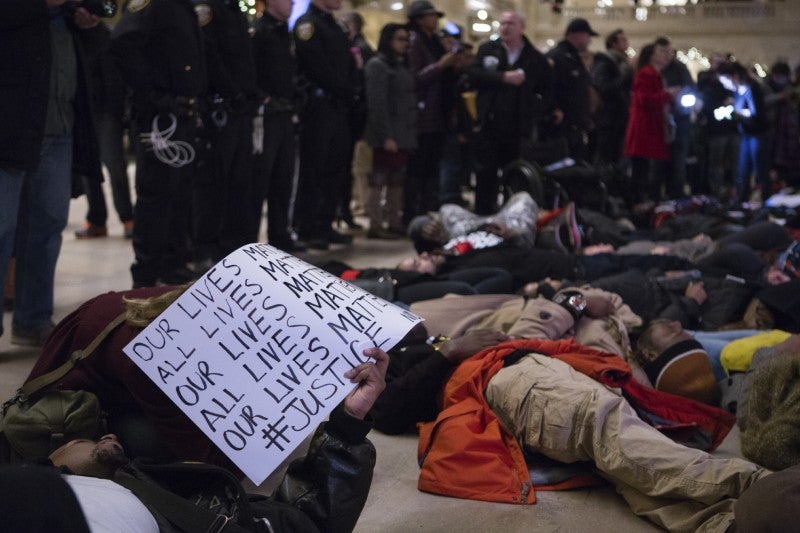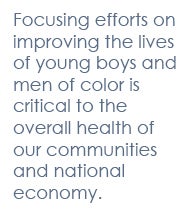
(Photo Credit: istockphoto.com)
In communities across the country, demonstrators have peacefully organized to protest against violence. Protesters have been seeking justice for Trayvon Martin, Michael Brown, and Eric Garner — among others — in an effort to demonstrate that all lives matter, especially the lives of young Boys and Men of Color (BMOC).
Focusing efforts on improving the lives of BMOC is critical to the overall health of our communities and national economy. Research conducted by Civic Enterprises in 2013 highlighted that among 16-24 year olds across the United States, 11.5 percent of white males are out of school and work, compared with 14.9 percent of Latinos and 24.9 percent of their African-American peers. While overall rates of disconnection from society are likely to trend down as the nation recovers from the Great Recession, history suggests that disconnected young men of color are in danger of being permanently left behind, and this has implications for future generations.

In response to this issue, President Barack Obama launched the My Brother’s Keeper (MBK) Community Challenge to, as the White House describes, “ensure that all youth, including boys and young men of color, have opportunities to improve their life outcomes and overcome barriers to success.” The Aspen Institute Forum for Community Solutions seeks to place a spotlight on collaborative approaches to solving seemingly intractable issues, including the challenges faced by young BMOC.
Through the Opportunity Youth Incentive Fund (OYIF), the first funder collaborative launched by the Aspen Forum, community collaboratives work to increase education and employment opportunities for youth who are out of school and work, many of whom are young BMOC. In doing so, OYIF communities have placed youth at the center of their efforts. These young people are called upon as leaders in the movement to reconnect the 6.7 million disconnected youth, because the reality is simple and plain: the voices of youth are critical to tackling the challenges they face.
It was in this spirit that I moderated a recent panel on youth engagement at the White House during the MBK Community Challenge National Convening. Participants were provided with the opportunity to hear personal stories from Daisee Francour of the Oneida Indian Reservation of Wisconsin; Taj Atkinson from Newark, NJ; Julius Robinson from Chicago, IL; and Malachi Hernandez from Boston, MA.
The stories of these young leaders included reflections on personal development; targeted efforts to improve youth-serving systems; anecdotes on founding organizations to support the cultural identity of Native American students pursuing postsecondary education; and community organizing strategies aimed at rebuilding relationships between BMOC and local law enforcement leaders. The youths’ stories were filled with hope, triumph, and a spirit of service connected to transforming self, systems, and community.
The goals of the OYIF are grounded in the stories of these young leaders. By focusing on the development of education and career opportunities — with youth at the center — the OYIF seeks to interrupt the multi-generational cycle of poverty that undermines the vibrancy and economic health of communities. Recently the Aspen Forum, in partnership with Jobs for the Future, was awarded a Social Innovation Fund grant of $6 million from the Corporation for National and Community Service to build on the groundwork of the OYIF. As we look toward the future, a great deal of hope and optimism prevails.
According to research conducted by Civic Enterprises, 73 percent of young people who are out of school and work are very confident or hopeful that they will be able to achieve their goals in life. At the Aspen Forum for Community Solutions, we are humbled by the opportunity to work with young people in communities across the country, because our young people are at the heart of real change. Together, we will ensure that collaborative efforts reflect their vision. As the old adage goes, “nothing about us, without us;” the gathering of youth leaders at the MBK Community Challenge National Convening embodies this ethos. Their voices and efforts will carry this work into the future and sustain it for generations to come.
Monique Miles is deputy director of the Aspen Institute Forum for Community Solutions.

